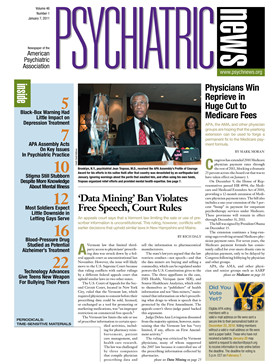Drugs that activate potassium channels in neurons might prove effective in treating Alzheimer's disease, new research suggests.
The research was headed by Mark Mattson, Ph.D., chief of the Laboratory of Neurosciences at the National Institute on Aging in Baltimore.
Abnormalities in potassium-channel function have been found in neurons taken from patients with Alzheimer's, suggesting that potassium channels might be a valuable focus for therapeutic research efforts. Neurons from patients with Alzheimer's also demonstrate compromised energy metabolism and calcium dysregulation. For such reasons, Mattson and his colleagues decided to see whether the medication diazoxide might have therapeutic potential in 3xTgAD mice.
Diazoxide is known to activate potassium channels and was used decades ago to treat high blood pressure. Today it is used to treat hyperinsulinism caused by a defect in potassium channels. The 3xTgAD mice are genetically modified so that they develop progressive Alzheimer-like brain pathology, such as amyloid plaques and tau tangles, and so that they experience cognitive and neuropsychiatric-like symptoms of dementia, such as deficits in learning and memory.
The researchers studied two groups of the 3xTgAD mice. One group was given diazoxide in drinking water for eight months; the other was given a placebo. After eight months, the diazoxide group outperformed the placebo group on both learning and memory. Moreover, the brain tissue of the diazoxide group, in comparison with that of the placebo group, showed fewer deposits of amyloid and tau proteins, the hallmarks of Alzheimer's; less damage due to oxidative stress; and better blood flow.
“Our findings show that diazoxide can ameliorate molecular, cytopathological, and behavioral alterations in a mouse model of Alzheimer's disease, suggesting a therapeutic potential for drugs that activate potassium channels in the treatment of Alzheimer's disease,” Mattson and his team said in their paper, which was published in the November 15, 2010, Journal of Alzheimer's Disease.
“These intriguing findings open new avenues of basic research that may increase our understanding of how modulating the electrical activity of nerve cells may slow the damage wrought by Alzheimer's disease pathology,” Richard Hodes, M.D., director of the National Institute on Aging, said in an accompanying press release.
Drugs that manipulate potassium channels in neurons may also prove helpful in neurological disorders other than Alzheimer's. For example, potassium channels are widely expressed in basal-ganglia neurons and play crucial roles in Parkinson's disease. Thus, drugs that alter these channels might have some therapeutic value as a Parkinson's treatment.
An abstract of “K ATP Channel Activator Diazoxide Ameliorates Amyloid-Beta and Tau Pathologies and Improves Memory in the 3xTgAD Mouse Model of Alzheimer's Disease” can be accessed at <http://iospress.metapress.com> by entering “The K ATP Channel Activator Diazoxide” under “Quick Search.” 
